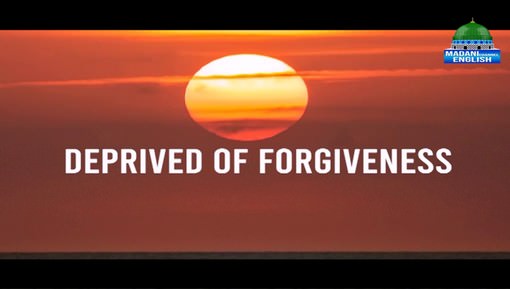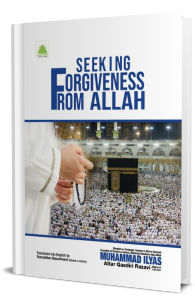
Path to Piety
Road to Forgiveness
Part 1
Mawlana Muhammad Nawaz Attari Madani
Whether a person basks in the bounties of Paradise or suffers in the pits of Hell is dependent on whether or not they are forgiven by Allah.
Let us first have the honour of reading three hadith of the final Prophet صَلَّى الـلّٰـهُ عَلَيْهِ وَاٰلِهٖ وَسَلَّم which discuss deeds that lead to forgiveness. Act upon them, whilst focussing upon the blessings and grace of Allah.
1. The Prayer of Forgiveness (ṣalāt al-tawba)
“Whoever sins but performs wudu, prays two units of salāh, and asks for forgiveness, will be forgiven by Allah.”[1]
Mufti Aḥmad Yār Khān Naʿīmi رَحْمَةُ الـلّٰـهِ عَلَيْه explains this hadith:
This prayer is called ṣalāt al-tawbah. After reciting Sūrah al-Fātiḥa in both units (rak’āt), it is better to recite Sūrah al-Kāfirūn in the first unit and Surah al-Ikhlāṣ in the second. One may also recite verse 135 of Sūrah Āl ʿImrān in the first unit and verse 110 of Sūrah al-Nisāʾ in the second. It is recommended to perform ghusl and wear washed, clean clothes before offering this salāh.[2]
2. Istighfār
“Whoever says:
اَسْتَغْفِرُ اللّٰهَ الَّذِیْ لَااِلٰهَ اِلَّا ھُوَ الْحَیُّ الْقَیُّوْمُ وَاَتُوْبُ اِلَیهْ
‘I seek forgiveness from Allah, besides Whom there is none worthy of worship; He is Ever-Living, Self-Subsisting, and I repent to Him,’ he is forgiven.”[3]
Mufti Aḥmad Yār Khān Naʿīmi رَحْمَةُ الـلّٰـهِ عَلَيْه explains:
This supplication for forgiveness is effective for the forgiveness of serious sins. The ulema explain that the repentance should be wholehearted and sincere. The repenting person must firmly resolve never to repeat the sin. Continuing to indulge in sin whilst uttering words of repentance is akin to jest and mockery.
When supplicating for forgiveness, the supplicant must feel remorse for his sin and promise never to commit it again in the future. If he is seeking forgiveness for having neglected someone’s rights, he must fulfil them. The essence of seeking forgiveness is not attained when the seeker verbally repents but continues to sin.[4]
3. Words that lead to forgiveness
A person came to the Messenger of Allah صَلَّى الـلّٰـهُ عَلَيْهِ وَاٰلِهٖ وَسَلَّم and cried, “My sins! My sins!” He said this two or three times. The Messenger of Allah صَلَّى الـلّٰـهُ عَلَيْهِ وَاٰلِهٖ وَسَلَّم instructed him, “Say this, اَللّٰھُمَّ مَغْفِرَتُکَ اَوْسَعُ مِنْ ذُنُوْبِیْ وَرَحْمَتُکَ اَرْجٰی عِنْدِیْ مِنْ عَمَلِی - ‘O Allah! Your forgiveness is vaster than my sins, and I am more hopeful of Your mercy than my deeds.’”
After the man uttered these words, the Prophet صَلَّى الـلّٰـهُ عَلَيْهِ وَاٰلِهٖ وَسَلَّم said, “Recite these words again”. The person did so. “Recite them again,” he repeated. The person did so again, to which the Prophet صَلَّى الـلّٰـهُ عَلَيْهِ وَاٰلِهٖ وَسَلَّم declared, “Stand up! Allah has surely forgiven you.”[5]


















Comments